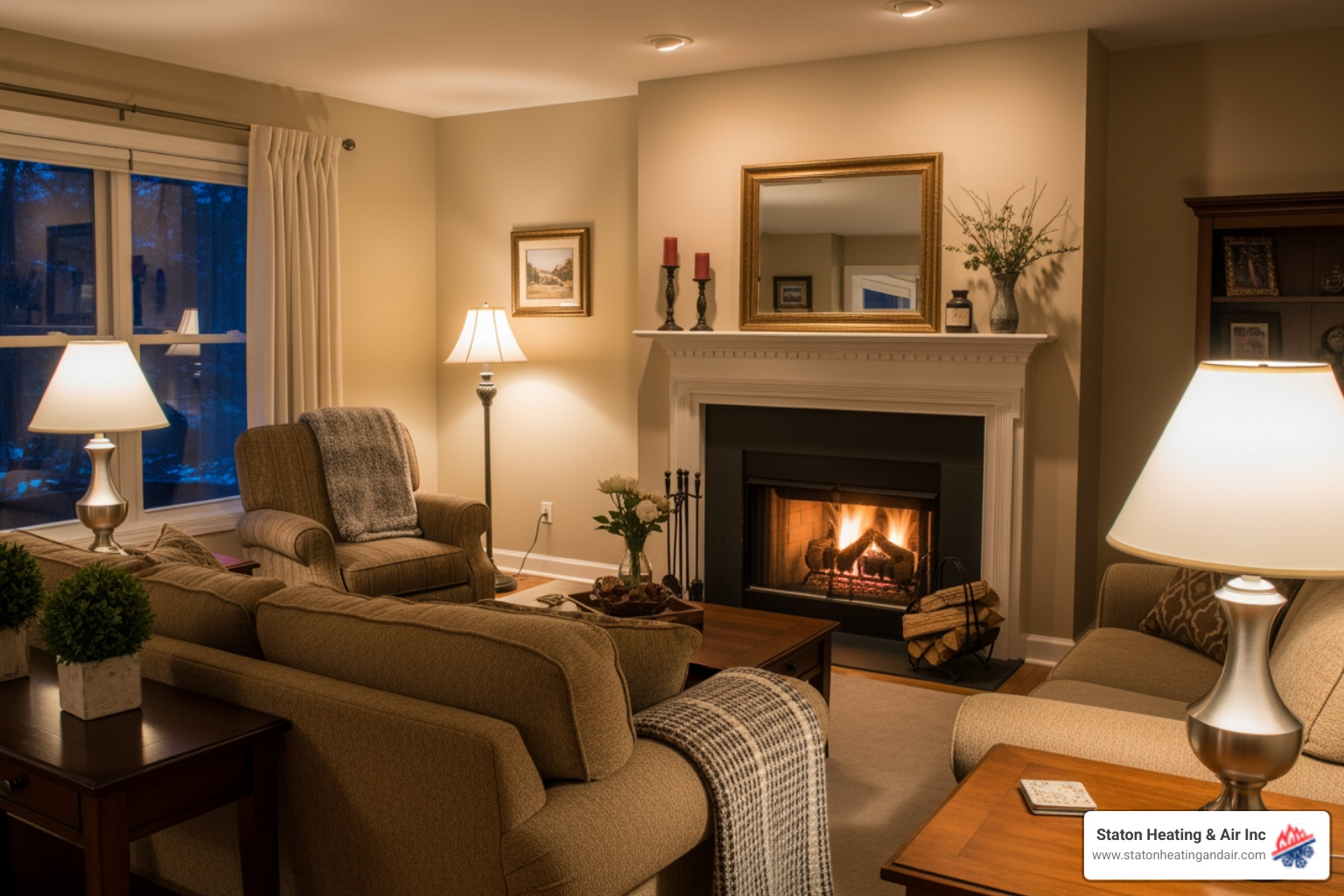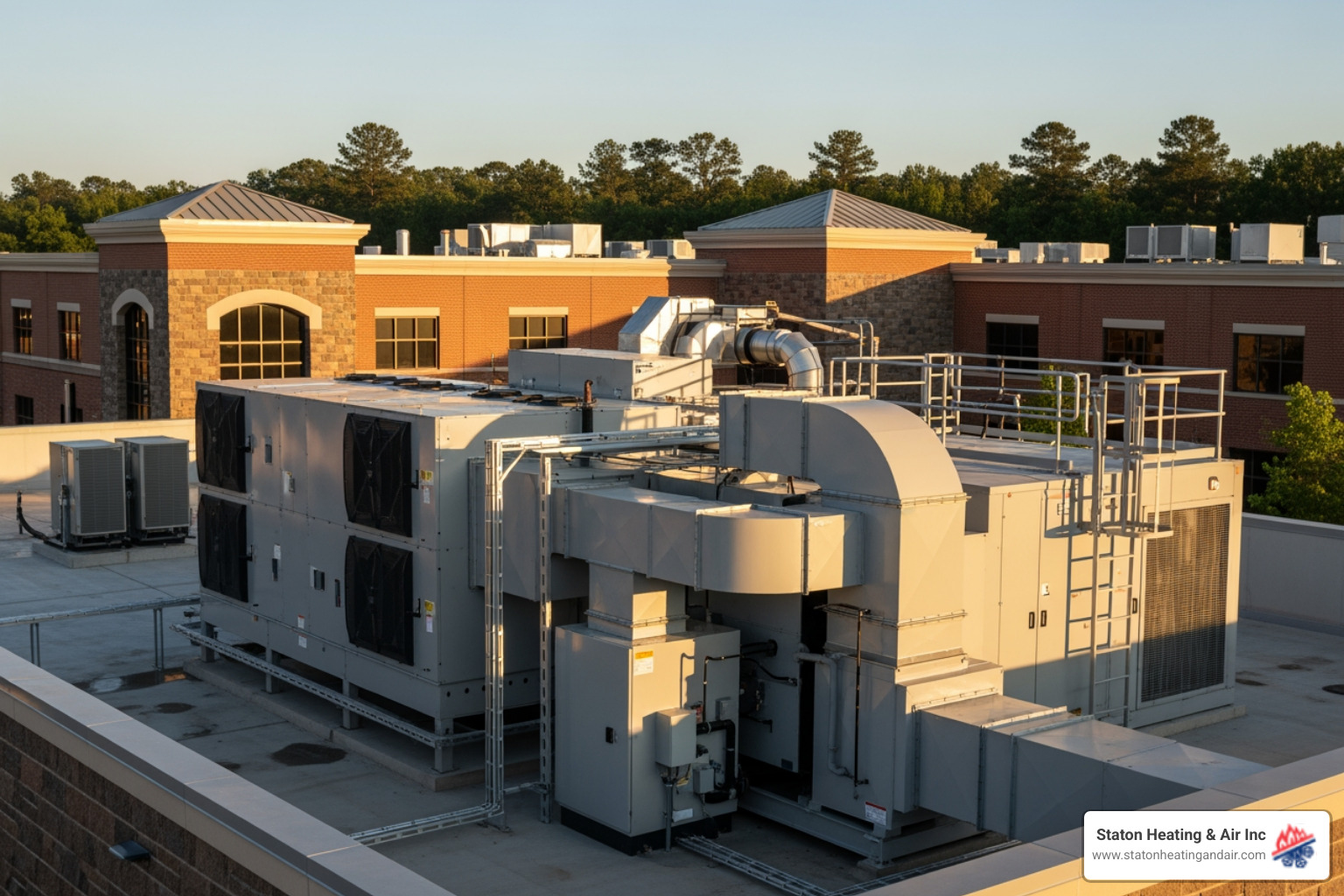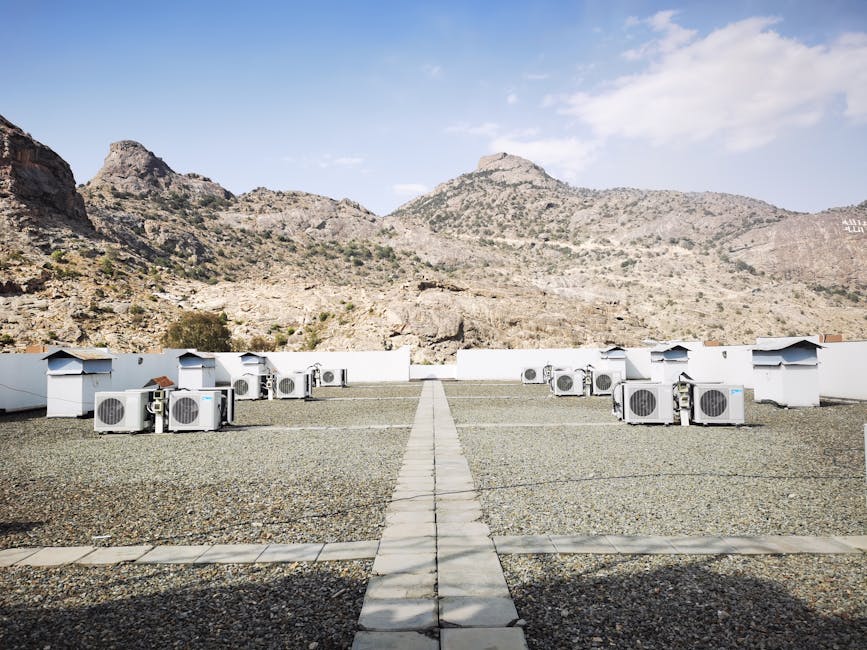From Alpharetta to Atlanta: Your Ultimate Guide to Furnace Installation & Replacement
Your Guide to a Warm and Comfortable Alpharetta Home
Furnace installation Alpharetta is a critical home improvement for staying comfortable through Georgia's chilly winters. Whether your system is aging or you're building a new home, the right local HVAC contractor is essential.
Quick Guide to Furnace Installation in Alpharetta
Here's what you need to know about furnace installation services in the Alpharetta area:
Top Local Services Available:
- Natural gas furnace installation and replacement
- Electric furnace installation
- Heat pump system installation
- Complete ductwork inspection and modification
- NATE-certified professional installation
- Same-day emergency service available
Service Areas Covered:
- Alpharetta
- Milton
- Cumming
- Roswell
- Johns Creek
- Duluth
- North Metro Atlanta
What to Expect:
- Installation typically takes 4-8 hours
- Professional load calculation to size your system correctly
- Code-compliant installation with all necessary permits
- System testing and calibration included
- Warranty registration and maintenance guidance
Dealing with a struggling furnace during an Alpharetta winter is a common problem for many homeowners. Thankfully, modern furnaces are more efficient, quieter, and reliable than ever. Local companies have decades of experience installing and maintaining these systems.
A new furnace installation isn't just about staying warm. It improves your home's energy efficiency, reduces utility bills, and provides peace of mind that your system won't fail on the coldest night.
This guide covers everything about furnace installation in Alpharetta, from identifying when you need a replacement to choosing the right system and finding a trusted contractor.
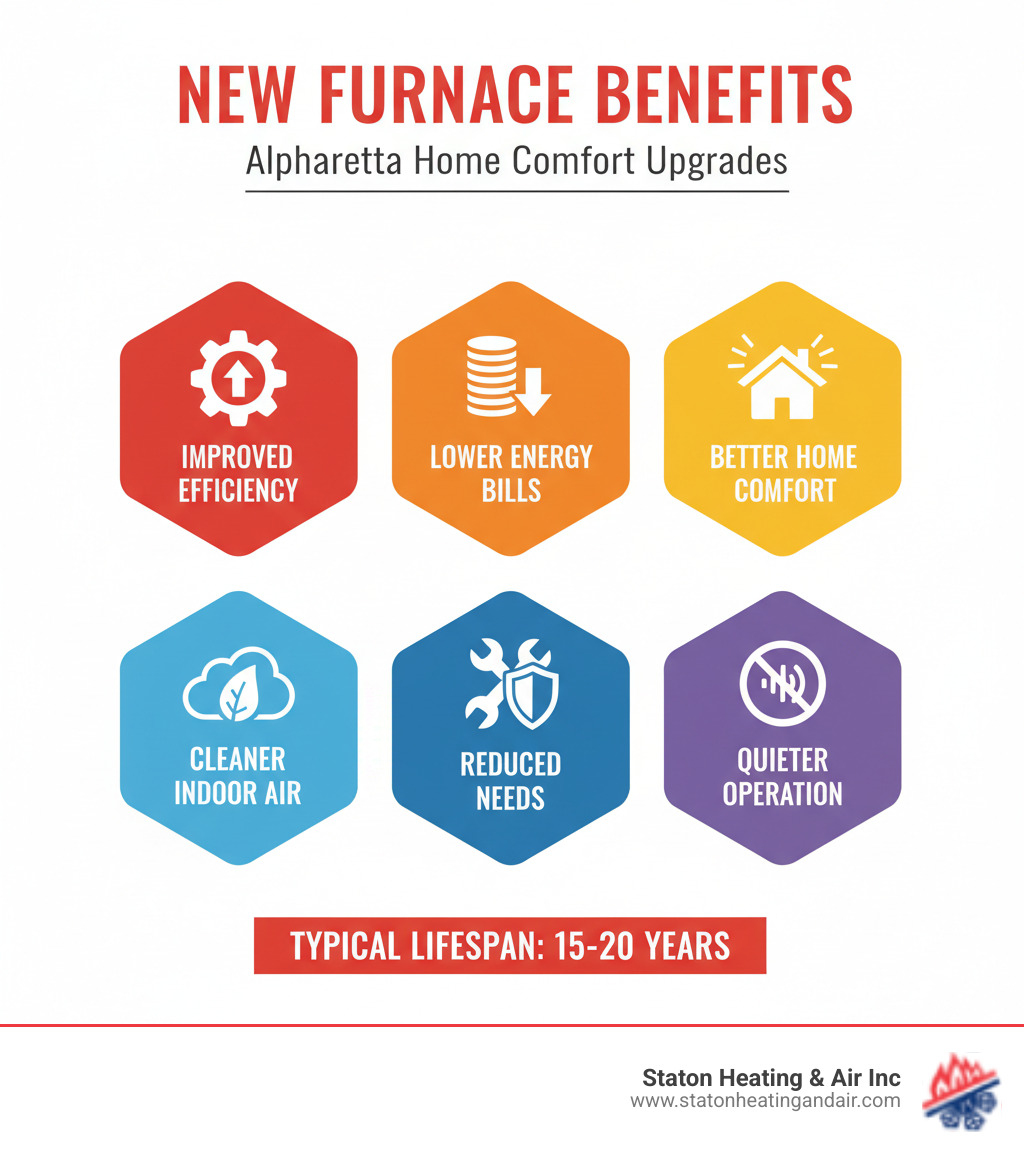
Is It Time for a New Furnace? Key Signs to Watch For
Knowing when to replace your furnace—rather than repair it again—can save you money and stress. Most systems last 15 to 20 years, so if yours is approaching this age, it's time to evaluate its performance.
Watch for these key signs that you may need a new furnace:
- Rising Energy Bills: An aging furnace works harder and uses more fuel to produce the same amount of heat, leading to higher utility costs.
- Frequent Repairs: If you're scheduling service calls multiple times a season, investing in a new furnace installation Alpharetta is often more cost-effective than continuing with expensive repairs.
- Strange Noises: Banging, squealing, or rattling sounds can signal failing components that may lead to a complete breakdown.
- Uneven Heating: Cold spots and inconsistent temperatures throughout your home indicate your furnace is struggling to distribute heat effectively.
- Yellow Pilot Light: For gas furnaces, a yellow or flickering flame is a safety emergency. It indicates incomplete combustion, which can produce dangerous carbon monoxide. Call a professional immediately.
A professionally installed system ensures all components work safely and efficiently. Learn more in our guide on the Importance of Pro HVAC Installation.
Why Upgrading Your Old Furnace is a Smart Investment
Replacing your furnace is an investment in your home's comfort and efficiency. The benefits of a modern system go beyond reliable heat.
- Improved Energy Efficiency: Today's furnaces have much higher Annual Fuel Utilization Efficiency (AFUE) ratings, converting more fuel into heat and lowering your monthly utility bills.
- Improved Home Comfort: Modern furnaces provide consistent temperatures, eliminating cold spots. Features like multi-stage heating and variable-speed blowers offer precise temperature control.
- Quieter Operation: New systems run much more quietly than older models, creating a more peaceful home environment.
- Better Indoor Air Quality: New furnaces can be integrated with advanced air filtration systems to reduce dust and allergens. A properly functioning system also eliminates worries about poor combustion affecting your family's health.
- Increased Reliability: A new furnace comes with a full warranty and the peace of mind that it won't fail during the winter, saving you from emergency service calls.
For more on keeping your system running smoothly, see our Alpharetta Heating Repair: Ultimate Guide.
Understanding Furnace Lifespan in Georgia's Climate
While the average furnace lasts 15 to 20 years, Georgia's climate affects its longevity. Our mild winters mean furnaces run less than in colder regions, but this can cause issues to go unnoticed. Additionally, humid summers can contribute to corrosion over time, as the furnace shares components with your air conditioner.
Regular maintenance is the most critical factor in maximizing lifespan. An annual tune-up helps a furnace outlast a neglected one. We recommend planning for a replacement when your furnace reaches the 10 to 12-year mark. This proactive approach allows you to research options, budget accordingly, and avoid a rushed decision during an emergency breakdown.
Planning ahead also lets you take advantage of seasonal promotions and flexible scheduling. Find how professional installation brings lasting comfort by visiting Heating Installation for Comfort.
Choosing the Right Furnace for Your Alpharetta Home
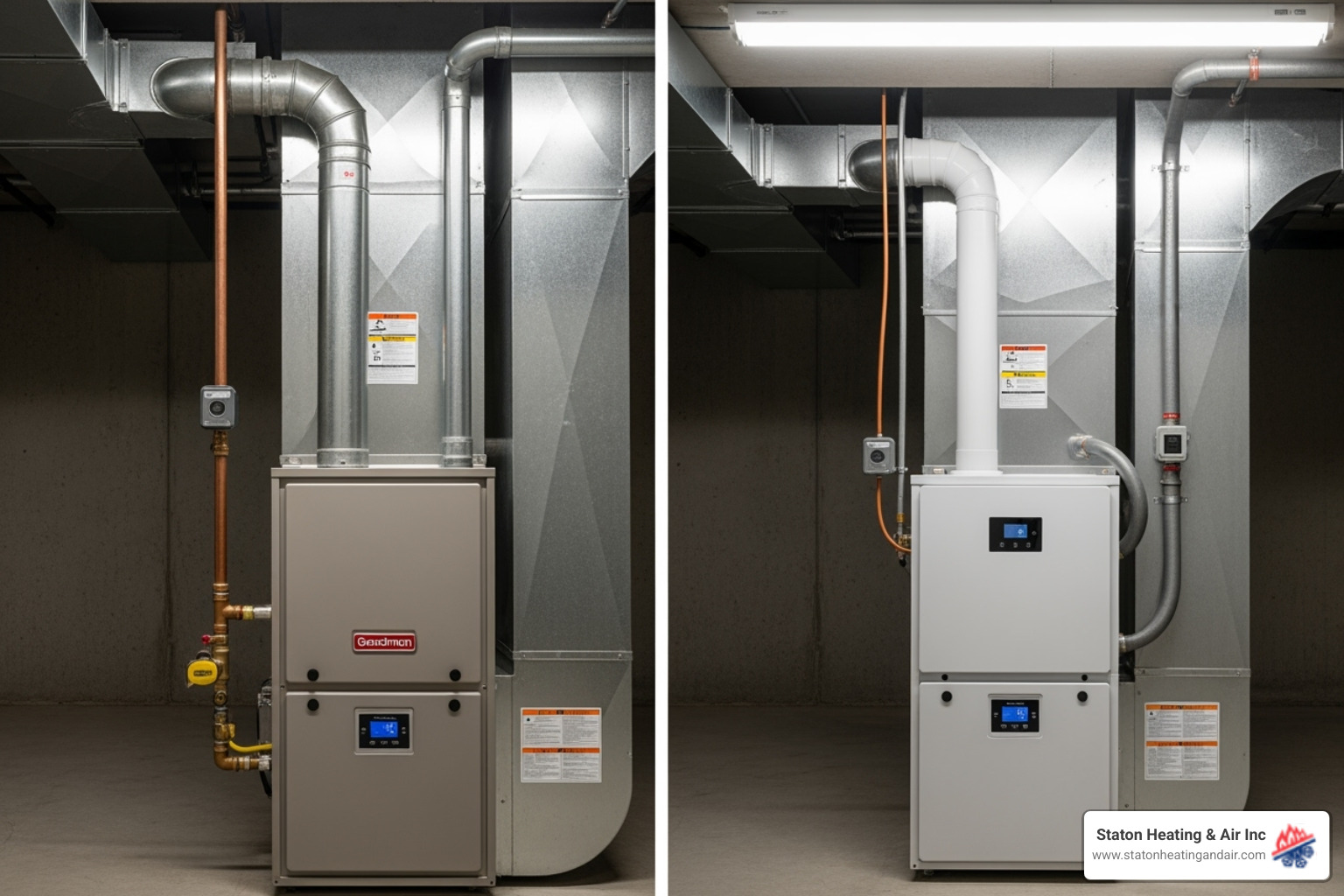
Selecting the right furnace is a long-term decision affecting your comfort and budget. The best choice depends on your home's unique size, layout, and insulation quality. A well-insulated home requires less heating power, while older, drafty homes need a system that can compensate.
For any furnace installation Alpharetta project, we consider your family's needs alongside technical factors like proper sizing, efficiency ratings, and fuel availability. We'll help you find a system perfectly matched to your home and lifestyle. For more tips, see our HVAC Installation Alpharetta Tips.
Main Types of Furnaces Available
There are three primary heating systems to consider:
- Gas Furnaces: The most common choice in Alpharetta, gas furnaces offer fast, efficient heat with lower operating costs. Modern units can achieve over 95% efficiency but require a gas line and proper venting.
- Electric Furnaces: These are often cheaper to install, require less maintenance, and don't need venting. However, they can have higher operating costs depending on electricity rates.
- Heat Pumps: Ideal for Georgia's climate, heat pumps provide both heating and cooling. They are highly energy-efficient in mild winters but may need a backup heat source on the coldest nights.
| System Type | Best For | Key Advantages | Considerations |
|---|---|---|---|
| Gas Furnaces | Most Alpharetta homes with gas access | Fast heating, high efficiency, lower operating costs | Requires gas line and venting, needs annual maintenance |
| Electric Furnaces | Smaller homes, areas without gas | Lower installation cost, safe operation, minimal maintenance | Higher operating costs in some areas |
| Heat Pumps | Georgia's mild climate | Heats and cools, very efficient in moderate weather | May need backup heat on coldest days |
Natural gas is widely available in Alpharetta, making gas furnaces a practical option. For residents in nearby Milton, our Furnace Installation Milton GA page offers area-specific information.
How to Select the Correct Furnace Size (BTUs)
Proper furnace sizing is critical for efficiency and comfort. A furnace that is too large or too small will perform poorly and increase costs. Furnace capacity is measured in BTUs, and determining the right size requires a professional Manual J load calculation.
This detailed assessment analyzes your home's square footage, ceiling height, windows, insulation, and local climate to determine the precise heating load.
- Oversized furnaces "short-cycle," leading to wasted energy, temperature swings, and a shorter equipment lifespan.
- Undersized furnaces run constantly without providing adequate heat, which overworks the system and increases energy bills.
A qualified technician will perform this calculation to recommend the right system. For more on proper installation, visit our guide on HVAC Installation for Home Comfort.
Understanding Efficiency: What is an AFUE Rating?
AFUE, or Annual Fuel Utilization Efficiency, measures how efficiently a furnace converts fuel into heat. A 95% AFUE rating means 95% of the fuel becomes heat, while only 5% is wasted.
The minimum standard for new furnaces is 80% AFUE, but high-efficiency models with ratings of 90% to 98% are available. These units use advanced technology to capture more heat from the fuel they burn.
While high-efficiency furnaces cost more upfront, the long-term savings on fuel bills can be substantial, often paying for the initial investment over the system's life. We can help you calculate the potential savings for your home.
To learn more, see this guide on AFUE ratings. For a complete overview, check out our Alpharetta HVAC Ultimate Guide.
Your Guide to a Warm and Comfortable Alpharetta Home
Furnace installation Alpharetta is a key home improvement for staying comfortable during Georgia's winters. Whether your system is old or you're building a new home, choosing the right local HVAC contractor is essential.
Quick Guide to Furnace Installation in Alpharetta
Here's what to know about furnace installation services in the Alpharetta area:
Top Local Services Available:
- Natural gas furnace installation and replacement
- Electric furnace installation
- Heat pump system installation
- Complete ductwork inspection and modification
- NATE-certified professional installation
- Same-day emergency service available
Service Areas Covered:
- Alpharetta
- Milton
- Cumming
- Roswell
- Johns Creek
- Duluth
- North Metro Atlanta
What to Expect:
- Installation typically takes 4-8 hours
- Professional load calculation to size your system correctly
- Code-compliant installation with all necessary permits
- System testing and calibration included
- Warranty registration and maintenance guidance
Many homeowners deal with a struggling furnace when winter arrives. Modern furnaces are more efficient, quieter, and reliable than ever. Local companies have decades of experience installing and maintaining these systems.
A new furnace installation isn't just about warmth. It improves energy efficiency, reduces utility bills, and provides peace of mind that your system won't fail on the coldest night.
This guide covers everything about furnace installation in Alpharetta, from recognizing when you need a replacement to choosing the right system and finding a trusted contractor.
Is It Time for a New Furnace? Key Signs to Watch For
A furnace typically lasts 15 to 20 years. If your system is approaching this age, it's wise to evaluate its performance and consider a replacement.
Key signs it might be time for a new furnace include:
- Rising Energy Bills: An older furnace consumes more fuel to produce the same amount of heat, increasing your costs.
- Frequent Repairs: If repair bills are adding up, a new furnace installation Alpharetta is often a more economical choice.
- Strange Noises: Banging, rattling, or groaning can indicate failing components that could lead to a complete breakdown.
- Uneven Heating: If some rooms are cold while others are warm, your furnace may no longer be able to distribute heat effectively.
- Yellow Pilot Light: A yellow or flickering flame on a gas furnace is a serious safety concern indicating incomplete combustion, which can produce carbon monoxide. This requires immediate professional attention.
Professional installation is crucial for safety and efficiency. Learn more in our guide on the Importance of Pro HVAC Installation.
Why Upgrading Your Old Furnace is a Smart Investment
Replacing your furnace is an investment in your home's comfort, efficiency, and value. The benefits of a modern, energy-efficient furnace are substantial.
- Energy Efficiency: Modern furnaces have much higher Annual Fuel Utilization Efficiency (AFUE) ratings, converting more fuel into heat and lowering utility bills.
- Improved Comfort: New systems provide more consistent temperatures, eliminating cold spots. Advanced features like variable-speed blowers also ensure quieter operation.
- Better Indoor Air Quality: New units can be paired with modern air filtration systems to reduce dust and allergens, and a properly functioning system eliminates combustion-related air quality risks.
- Increased Reliability: A new furnace comes with a warranty and the peace of mind that it is less likely to break down during cold weather.
Upgrading pays dividends in comfort and savings. For more tips, see our Alpharetta Heating Repair: Ultimate Guide.
Understanding Furnace Lifespan in Georgia's Climate
The average 15 to 20-year furnace lifespan can be affected by Georgia's climate. Our mild winters mean furnaces run less, but humid summers can still cause wear on shared HVAC components.
Regular maintenance is the key to maximizing your furnace's lifespan. An annual tune-up will help a system operate efficiently and last longer. We recommend planning for a replacement once your furnace is 10-12 years old. This allows you to research options and budget accordingly, avoiding the pressure of an emergency breakdown.
Being proactive ensures you're ready for a new heating installation. Learn how professional installation brings lasting comfort by visiting Heating Installation for Comfort.
Choosing the Right Furnace for Your Alpharetta Home
Selecting the right furnace is a long-term decision affecting your comfort and energy bills. The best system depends on your home's unique factors, including size, layout, and insulation quality.
For any furnace installation Alpharetta project, we evaluate proper sizing, efficiency ratings, and fuel types to find the perfect match. Natural gas is widely available, making it a popular choice. For more guidance, check out our HVAC Installation Alpharetta Tips.
Main Types of Furnaces Available
When exploring furnace installation Alpharetta options, you'll find three primary system types.
- Gas Furnaces: Highly efficient (up to 98% AFUE), they heat quickly and are ideal for homes with natural gas access. They require professional maintenance.
- Electric Furnaces: Less expensive to install and requiring minimal maintenance, these are a safe option for smaller homes but can have higher operating costs.
- Heat Pumps: These systems provide both heating and cooling and are extremely energy-efficient in Georgia's winters. The initial investment may be higher, but they can reduce overall HVAC costs.
For location-specific guidance, see our page on Furnace Installation Milton GA.
How to Select the Correct Furnace Size (BTUs)
Installing a furnace that is too large or too small causes comfort issues and wastes energy. Getting the size—measured in BTUs—just right is critical.
A professional Manual J load calculation is the standard for sizing a furnace. This assessment considers your home's square footage, windows, insulation, and other factors to determine its exact heating needs.
- An oversized furnace will "short cycle," wasting energy, creating uneven temperatures, and shortening its lifespan.
- An undersized furnace will run constantly without reaching the target temperature, leading to high energy costs and premature failure.
A properly sized system runs efficiently and maintains consistent temperatures. For more insights, visit our guide on HVAC Installation for Home Comfort.
Understanding Efficiency: What is an AFUE Rating?
AFUE (Annual Fuel Utilization Efficiency) measures how well a furnace converts fuel into heat. An 80% AFUE rating means 80% of the fuel warms your home, while 20% is wasted.
Today's minimum standard is 80% AFUE, but high-efficiency models can reach 90% to 98% AFUE. While these furnaces cost more upfront, the long-term savings on utility bills can be significant, often paying for the investment over a few years.
For a deeper dive, Carrier offers an explanation of AFUE ratings. You can also check out our Alpharetta HVAC Ultimate Guide for more local insights.
Recent Posts
What Our Customers Are Saying


Ready to Transform Your Home?

Recent Blog







